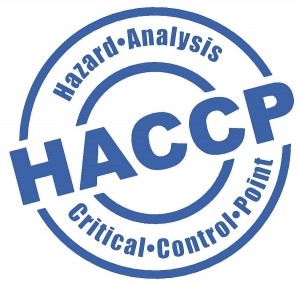Strategic HACCP Implementation: A Roadmap To Unparalleled Food Safety
HACCP Services in Bangalore

About HACCP Certification
HACCP Services in Bangalore : HACCP, which stands for Hazard Analysis and Critical Control Point System, is a system for ensuring food safety that guards against food harm. In accordance with ISO standards, ISO 22000 is a global standard that was developed to maintain the protection of the world’s food supply. Oman is the oldest independent state among the Middle East countries. It is one of the most traditional countries in the Gulf region. Since a slump in oil prices in 1998, Oman has made active plans to diversify its economy and is placing a greater emphasis on other areas of industrial sectors which and this the reason behind increased demand for ISO certification in Muscat for a company to stabilize a difficult attain sustainability in the market.
Four HACCP principles
There are four major principles to implement the plan
-
Running a Hazard Assessment
Defining the steps along the way and identifying the spots where considerable dangers are sure to emerge are two primary ways to put this theory into practice. The HACCP team will emphasize on threats that the HACCP plan can minimize, eradicate, or mitigate.
-
Pick out the critical control points
A CCP clustering algorithm will be used by the HACCP team to aid in determining the process' relevant control points. A critical control point (CCP) may be able to discuss more than one concern to food safety, or in other scenarios, more than one CCP may be required to address an one threat.
-
Settle on Critical Limits
The highest and/or average value that a bio, biochemical, or physical parameter must be monitored at a CCP in order to prohibit, abolish, or minimize the occurrence of a foodstuff safety hazard to a sensible level is known as a critical limit (CL).
-
Create countermeasures
Disciplinary measures are the measures taken when a divergence from a critical limit occurred. The HACCP organization must determine the efforts that must be taken to remedy the process as well as the steps that will be taken to stop potentially hazardous food from entering cells
Features of HACCP
Using materials for mass production, storing food, transporting it to sales locations, and providing customer service is a key component of the HACCP system for controlling food safety. HACCP's preventive strategy monitors food safety and supports other quality management systems. adherence to requirements and safeguards the company image. The main advantage of HACCP for a firm is the harmonization of processes, which improves business intelligence control. Regardless of the advantages, you want to earn from this certification, we'll make sure your company receives the rewards of HACCP implementation and certification . Increases employee productivity by encouraging teamwork, and increases employee enthusiasm and morale by maintaining a clean working environment. Through audit procedures and performance reporting, you can check if your technologies are in compliance with statutory, regulatory, and other requirements.
where to obtain certifications in HACCP?
We can quickly obtain HACCP certification. The market is flooded with HACCP consulting services. However, it is important for us as customers to have a basic understanding of the HACCP procedure. Before beginning the certification process, the consulting firm should be aware of the organization’s risk assessment. creating an accurate record of every step of the process carefully, good in document preparations. and proficiency in creating the HACCP procedures for the food industries with cost-effectiveness. To make your business get through the HACCP control system, we focus on providing HACCP instruction, execution, discussion, analysis phase, recordkeeping, regular audits, certification audit through the best certification bodies, and post certification.
